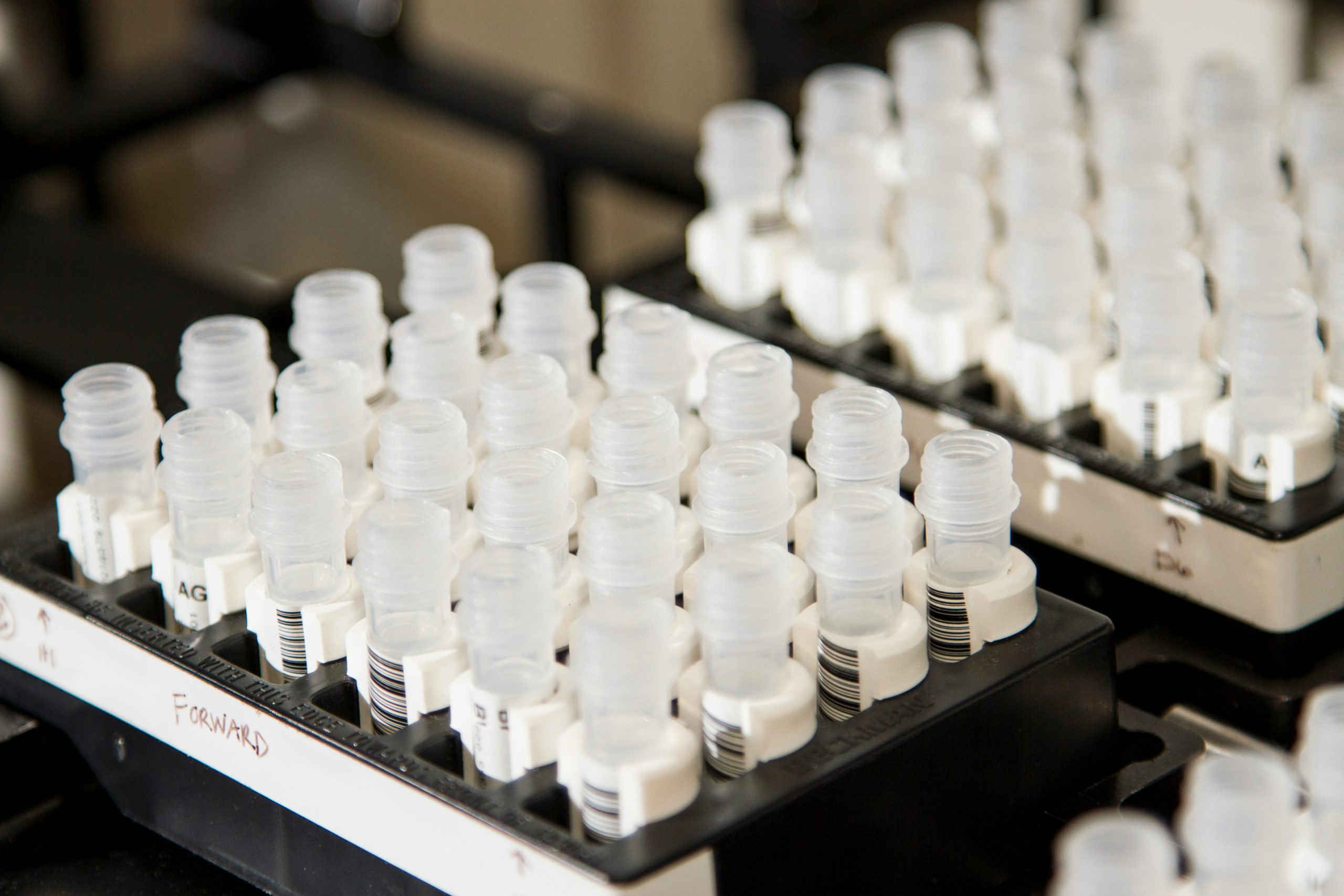In 2023, Myositis UK adopted a new process for reviewing grant applications to decide which research projects to fund in the field of myositis. We awarded four projects using this process in 2023 and are pleased to be able to share more information about a further three projects awarded funding since December 2023.
Project ‘5’
Biomarker identification for treatment response to the oral JAK 1/2 inhibitor, baricitinib, in adult idiopathic inflammatory myopathy
Dr Janine Lamb (University of Manchester).
Awarded: £20,000, December 2023
Inflammation in the muscles and other symptoms has a significant impact on quality of life of people living with myositis. While immune suppression drugs can help, there are often side-effects and not all individuals respond to these drugs. The applicants are currently completing a clinical trial of a new drug, baricitinib, in adult-onset myositis, a drug which blocks signalling of inflammatory chemicals.
In the proposed study, we aim to build on the clinical data and biological samples collected during this clinical trial to identify molecular predictors and markers of response to treatment with baricitinib.
We have collected biological samples (including blood, serum, DNA) from all patients in the trial at baseline (pre-treatment), and at 3 timepoints throughout the trial. Using these samples, we will apply a range of complementary experimental approaches to look at the levels of inflammatory markers and myositis autoantibodies (immune proteins), the relative frequency of different types of immune cells in the blood, and genetic differences between patients. We will compare the samples collected pre-treatment to post-treatment and at the different timepoints throughout the trial to look at changes over time and in response to treatment. We will correlate these molecular measurements to levels of inflammatory muscle enzymes, and clinical measures of response to baricitinib treatment and changes in disease activity.
We anticipate this research may identify molecular predictors and markers of response to treatment with baricitinib and disease activity in individuals with adult-onset myositis. This knowledge may help to develop more individually targeted treatment approaches and to improve future disease management in myositis. Characterisation of these molecular markers will also give insight into the biological mechanisms and causes of myositis.
Project ‘6’
A mitochondrial gene signature to stratify juvenile dermatomyositis patients for targeted treatments.
Lead Researcher Dr Meredyth Wilkinson (University College London).
Awarded: £19,973.70, June 2024
Juvenile dermatomyositis (JDM) is a rare autoimmune condition in which the body’s defence system (designed to stop infections) attacks itself leading to muscle weakness and skin rashes. Some patients get damage to lungs, gut and even brain. Treatments used in JDM suppress the body’s defence system, but do not work for all patients and can cause unwanted side effects. If we understood exactly which part of the body’s defence system was going wrong it would help us target this with more effective medication. Our recent publication showed that genes (the human code) that code for mitochondria (‘powerhouse’ energy producers of the cell) were less active in JDM patients (even those already on strong treatment) than in healthy children of the same age. We believe that these discoveries allow us to develop tests to measure mitochondrial problems and identify better treatments for patients. Importantly, fatigue is one of the most common symptoms described by JDM patients and needs to be addressed. We believe that mitochondrial problems may relate to the levels of fatigue in children with myositis.
In two groups of JDM patients measuring expression of thousands of genes in blood cells, we have identified a set of 37 genes that represent the mitochondrial problems seen in immune cells. Using a technology called nCounter made by NanoString (measure expression of a fixed set of genes), the mitochondrial gene signature (MGS) will be measured as a set to measure mitochondrial problems.
Aim 1: Investigate if the MGS can characterise groups of patients, and predict disease type, severity or outcome.
Aim 2: Establish if the MGS measured in blood relates to levels of fatigue experienced by JDM patients.
Project ‘7’
MIRAGE: Myositis Inflammation Revealed through Advanced Magnetic Resonance ImaGing Evaluation A Prospective Study Amount requested.
Professor Pedro Machado (University College London)
Awarded: £19,908.65, June 2024
Our study focuses on understanding and better assessing a group of autoimmune muscle disorders called idiopathic inflammatory myopathies (IIMs), which can affect various body parts beyond muscles. To evaluate these conditions, we can use advanced imaging techniques, particularly magnetic resonance imaging (MRI), which helps us visualise muscle inflammation and damage. We aim to develop a new MRI method called T2-water quantifiable MRI (Q-MRI), which can accurately measure muscle inflammation in adults with IIMs. We hypothesise that this method will provide more precise and objective assessments of muscle inflammation compared to current MRI techniques. Our study involves two visits over a period of 3-6 months for 16 adult patients with IIMs. During these visits, we will conduct various assessments, including MRI scans of the pelvis and thighs, evaluations of disease activity and damage, tests of physical function and mobility, and assessments of fatigue and organ involvement. We will also evaluate how patients respond to treatment using established criteria. By the end of our study, we hope to validate the new MRI method as a reliable tool for assessing muscle inflammation in IIMs. This could lead to better monitoring of disease activity, improved treatment decisions, and ultimately, better outcomes for patients with these challenging conditions. This study has the potential to advance our understanding and management of IIMs, ultimately improving the lives of individuals affected by these conditions.
See all projects
You can read about all seven projects funded through this process on our current research page.
Next funding call
The next funding call deadline is Friday 27 September 2024 where two small grants of up to £20,000 and one large grant of up to £100,000 are available to UK researchers working within the field of myositis. Find out more.


